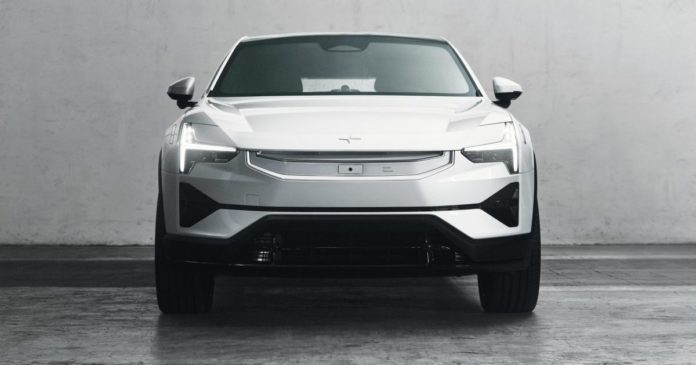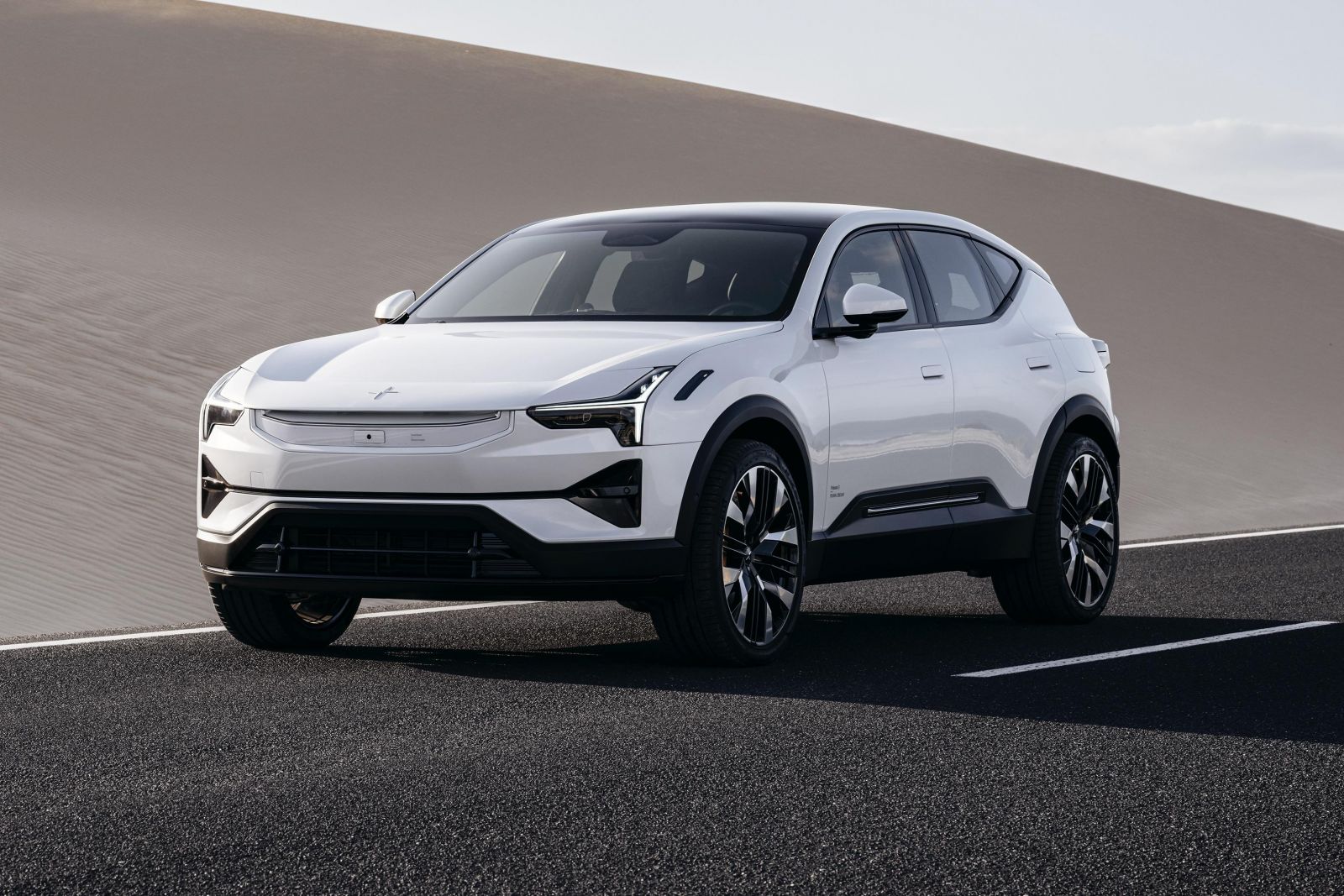Polestar is rolling out a driver monitoring system that tracks head and eye movements to detect signs of distraction or tiredness.
This system, standard in the Polestar 3 SUV, uses two closed-loop cameras and software from Swedish company Smart Eye, to track the driver’s head, eye and eyelid movements and trigger warning messages, sounds – and even an emergency stop in worst-case scenario.
Data from the various systems is processed and interpreted by the car’s centralised computer, powered by NVIDIA. This is expected to become critical technology in the coming years as regulators ratchet up requirements for vehicle safety.
The publicly listed company started by Volvo and parent Geely will demonstrate the driver monitoring system at CES in Las Vegas during January 2023.
Visitors to CES will be able to see how the cameras track the driver’s head and eye movements, and observe how the AI software can detect the state of the driver in real time.
“This technology addresses some of the main reasons behind fatal accidents and can help save lives by prompting the driver to refocus attention on the road – and can initiate preventive action when they don’t, or can’t,” says Polestar CEO Thomas Ingenlath.
Smart Eye CEO and founder Martin Krantz added: “We are excited to have our fellow Swedish innovators on our stand at CES. With over one million cars now featuring our advanced driver monitoring technology, it’s a great opportunity to showcase what lies beneath the surface in one of the latest cars to join our family.”
Polestar and Smart Eye are both headquartered in Gothenburg, “spotlighting the increasingly important role Sweden’s second largest city plays in the advancement of automotive technology and development”, Polestar adds.
About the Polestar 3
The Polestar 3 is a distinctive-looking five-seater destined to join the existing Polestar 2 liftback in the company’s growing line-up from late 2023 in North America, Europe and China, and 2024 for other regions including Australia.
It will be the first Polestar made in two countries: starting in Chengdu, China, and then in the United States from 2024 at a plant in South Carolina.
The BMW iX-rivalling Polestar 3 is quite large at 4900mm long, and seats five rather than seven. It also has a sporty roofline and a wide crossover stance, differentiating it from the impending, family-focused Volvo EX90 that’s closely related.
Designed from the ground up as an electric vehicle, the Polestar 3 uses a large 111kWh and 400V lithium-ion battery with a prismatic cell design and liquid cooling, all supplied by CATL.
The company is working towards a 610km driving range on the WLTP test cycle, while the peak DC charging rate is listed as 250kW.
The Polestar 3 will also offer bi-directional charging, both vehicle-to-grid and vehicle-to-load. Volvo has already confirmed the related EX90 will offer the same feature.
Launch models will feature dual-motor all-wheel drive with system outputs of 360kW and 840Nm, which can be bumped to 380kW and 910Nm with the optional Performance Pack. Polestar claims the 3 can tow 2200kg.
The SUV will come with adjustable regenerative braking with a one-pedal driving option, electric torque vectoring via clutches at the rear axle, and an efficiency-minded rear motor decoupling function.
The 3 will also come standard with two-chamber air suspension and active dampers, with at least two driving modes called comfort and dynamic. The aforementioned Performance Pack adds “optimised” air suspension and unique 22-inch wheels.
Beyond this, an optional Pilot Pack adds a state-of-the-art LiDAR, three cameras, four ultrasonic sensors, and cleaning for the front- and rear-view cameras, offering copious real-time data about the car’s surroundings especially in the long-range field.
A section called the ‘SmartZone’ below the front aero wing collects several of the forward-facing sensors, and a heated radar module and camera.
The Polestar 3’s interior embraces an EV theme through the use of sustainable materials such as bio-attributed MicroTech, animal welfare-certified leather, and fully traceable wool upholsteries. A complete life-cycle assessment will be completed when production begins.
It’s the first Polestar to use centralised computing from an Nvidia Drive core, with Volvo software. This platform processes data from all the car’s cameras and sensors.
Polestar will also adopt a newly revealed Volvo system in which interior radar sensors detect sub-millimetre movements in the interior of the car, to help protect against accidentally leaving children or pets inside. The system is also linked to the climate control system.
Meanwhile the infotainment system is powered by a next-generation Snapdragon Cockpit Platform from Qualcomm Technologies, to speed up the high-definition displays and connectivity throughout the vehicle.
The 14.5-inch centre display runs the Android Automotive in-car operating system like the Polestar 2, with over-the-air (OTA) updates offered.
Standard features across the range are said to include a panoramic glass roof, all-LED lighting inside and out, retractable door handles with proximity sensing, and 21-inch alloy wheels.
Options will include a 25-speaker audio system from Bowers & Wilkins with 3D surround sound and Dolby Atmos capability, soft-closing doors, and a head-up display.
At launch the Polestar 3 Long Range Dual Motor will kick off at 89,900 euros (A$140,000), similar to the German price of a BMW iX xDrive50.
The Polestar 3 is the company’s second model, but the range will expand to include the smaller Polestar 4 SUV and Polestar 5 grand tourer by mid-decade.
Keep your eyes peeled for our first drive of the 2023 Polestar 3 soon.
MORE: Polestar – brand overview, and what’s next






